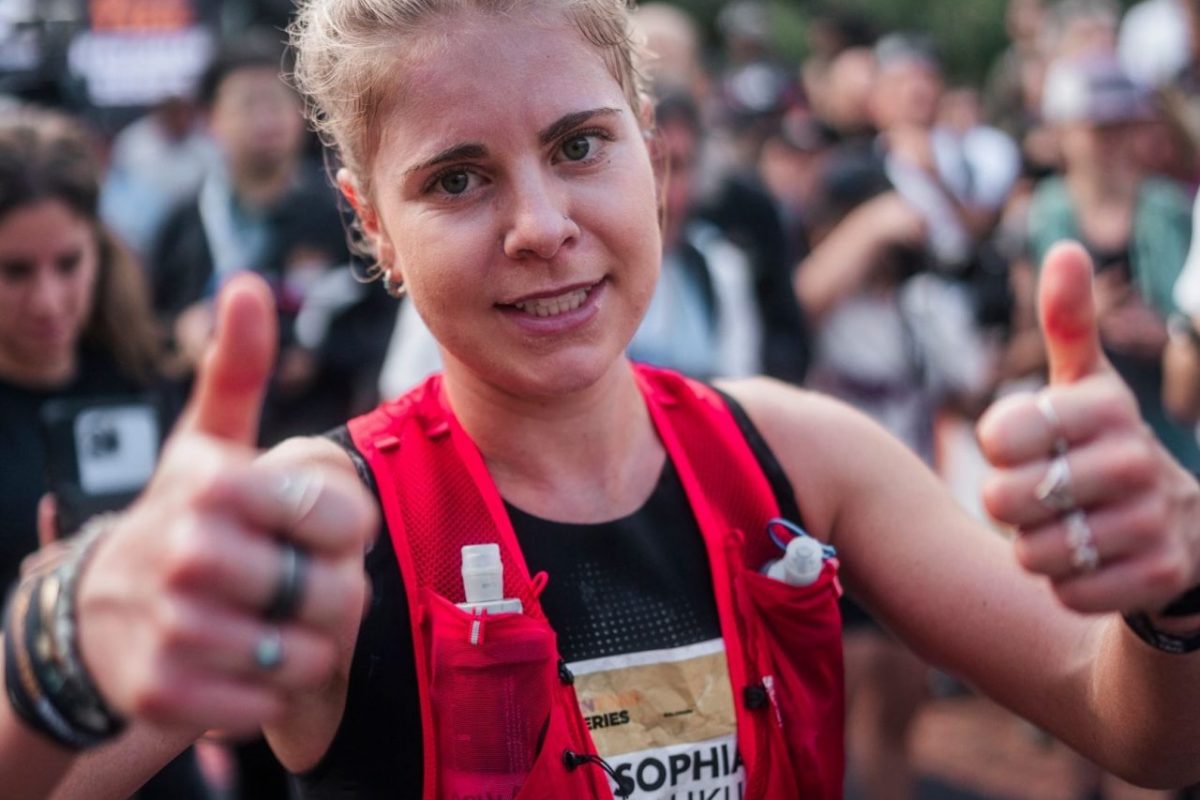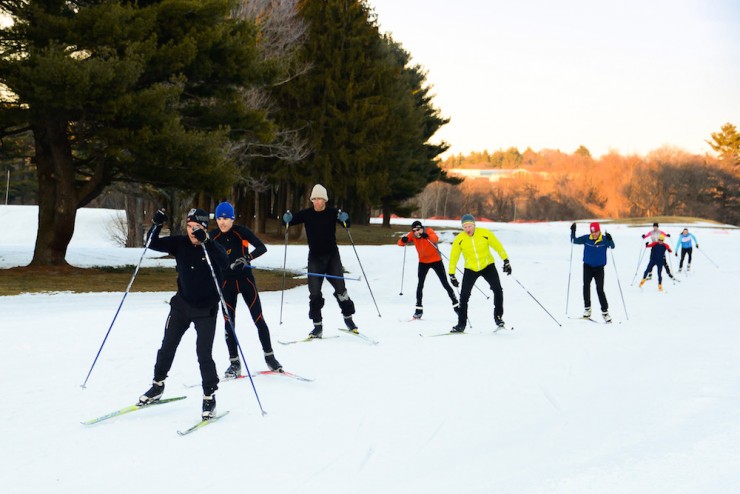
It’s a transition that has some of the Boston ski community nervous. But after initial skepticism, there may be reconciliation as Boston’s most accessible nordic-ski area, the Weston Ski Track, opens this winter under new management.
This winter, the Massachusetts Department of Conservation and Recreation (DCR) will take over the ski operation on the state-owned Leo J. Martin golf course in Weston, Mass.
In a 12-hour span on July 31, the DCR informed both Larry Smith, the owner of Charles River Recreation, which has run Weston for the last 40 years, and the Friends of Leo J. Martin Skiing (FOLJMS), a nonprofit that advocates for Boston-area skiers, that the state would take over ski operations this winter.
“It caught everybody by surprise,” Smith said in a phone interview.
The proprietor for Charles River Recreation (CRR), which also runs Charles River Canoe & Kayak and Community Ice Skating in nearby Cambridge, Mass., Smith has operated his business by partnering with the DCR and local municipalities for decades. While he will no longer be in charge of Weston, he remains a consultant for the DCR.
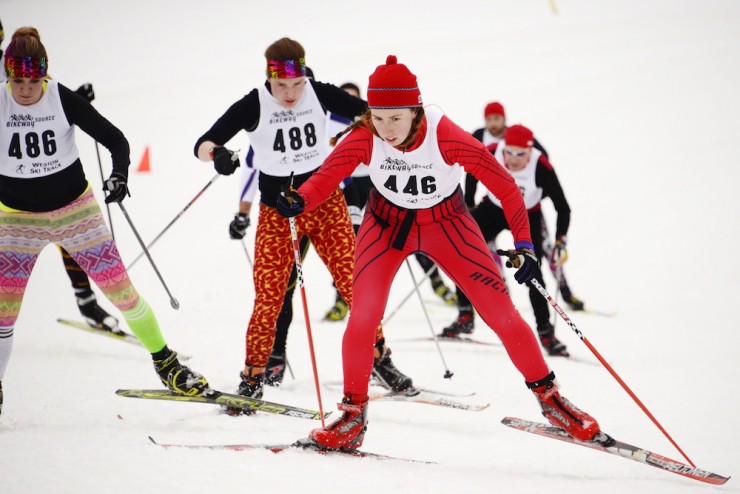
With 42,000 skier visits last winter, the Weston Ski Track is a key resource for local skiers. In contrast, New York’s Regional Olympic Development Authority (ORDA) reported 35,000 skier visits last season at Mount van Hoevenberg in Lake Placid, N.Y.
Weston’s 15-kilometer trail system hosts a wide range of skiers, including the Harvard nordic team, the Cambridge Sports Union’s (CSU) juniors and master programs, an adaptive program, a high-school league, as well as thousands of recreational skiers who want to get out and glide after work.
After 40 years of management by Smith and CRR, skiers were concerned about the future. Part of the community’s concern was the DCR’s lack of ski expertise, and part is due to recent history.
“We have been wrestling with the DCR for the past two years,” Rob Bradlee, CSU’s head coach and a member the FOLJMS advisory board, wrote in an email.
“[The previous administration] tore down the old driving range poles and nets and in the process tore down Weston Ski Track’s lights and electric power,” Bradlee wrote. “They did this without any warning or consultation. Weston had to use temporary construction-site lights for the past two years.”
“Last year, they closed off two very hilly fairways that we use with natural snow,” he added. “So, in the best snow winter ever we couldn’t ski on the few decent hills the place has.”
There are concerns about snowmaking. Twelve miles outside Boston, the old Weston depended as much on snowmaking as natural snow.
According to Bradlee, because the DCR failed to sign a contract with CRR in time to allow snowmaking at the start of a warm December, Weston wasn’t open for skiing until after Christmas last year.
The New England Nordic Ski Associaton (NENSA) 2015 Club of the Year, CSU is a powerhouse local club with a strong junior program. The bulk of its winter training takes place at Weston, thanks to its central location and night skiing. If DCR stumbles and the worst happens, there aren’t convenient alternatives.
“There is NO alternative,” Bradlee wrote. “We’d rely on dryland training and driving on the weekends to find snow.”
“I don’t think it’s an option for [DCR] to fail. That’s not to say I don’t think it will be rough.” — Chris City, head coach of the Harvard University nordic team
Windblown in southern New Hampshire is one of the closest alternatives, but it’s a 90-minute drive from downtown Boston and doesn’t offer night skiing. By contrast, Weston is a 30-minute drive for many Bostonians and has illuminated trails at night.
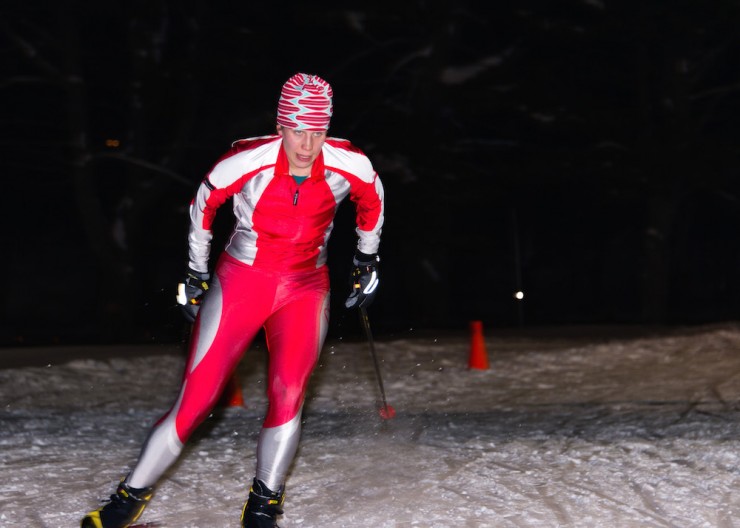
“They’re not skiers, they don’t know anything about operating a ski facility,” Chris Doyle, FOLJMS’s board chairman, said in a phone interview. “They clearly were not going to be able to do this on their own without any advice. We’d end up by default with a bad product. We reluctantly decided we had to tell them what’s needed in order to run the place.”
DCR Deputy Commissioner Matthew Sisk said on the phone that the decision to takeover Weston had “nothing to do with protecting the interests of golf and all to do with fulfilling our mission here at DCR, which is to conserve open land, protect and provide high quality recreation opportunities.”
Sisk acknowledged that it was a big change, adding, “This is going to be a good experience. We’re going to have a great season this year, people are going to see an increase in the amount of skiing they have available to them.”
FOLJMS had developed a master plan for skiing at Weston, which they submitted to the DCR in August. They envisioned FOLJMS managing skiing there, and their plan details short- and long-term infrastructure improvements, including new ski trails, a rollerski loop and an expanded lodge. Doyle said that while the DCR was impressed with the scope of the document, it decided to pursue its own course.
Since then, FOLJMS and DCR have met several times to discuss operations.
Asked whether DCR would implement any of recommended improvements, Sisk said, “Speaking specifically to their master plan is not something I’m going to do. I can tell you we’ve actively worked with [the FOLJMS] president, board, and membership to make this a smooth transition.”
This winter, DCR plans to re-open the Mount Weston hills and make snow on three kilometers of track, up from 2.5 k during the CRR era.
“I wouldn’t have discovered skiing without Weston,” said Harvard’s head nordic coach Chris City.
He began skiing at Weston in 1985. While City wasn’t pleased how the change transpired, he said the DCR has been receptive to the ski community’s input on running Weston.
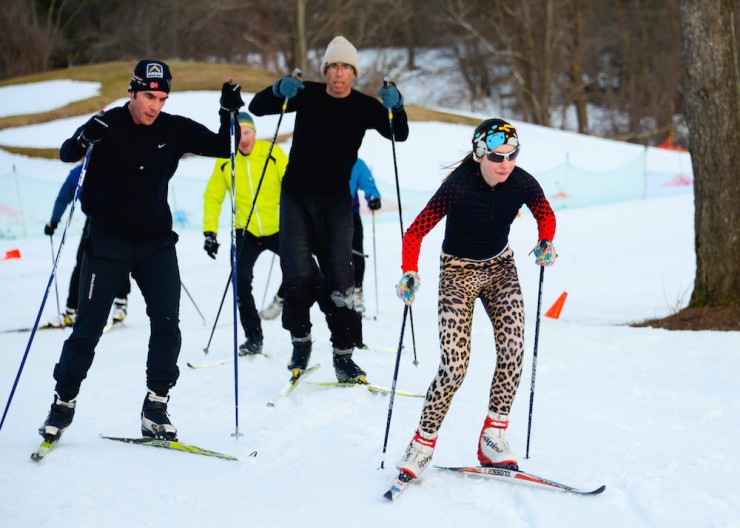
Like CSU, Harvard depends on Weston as a training venue. Without it, he said they’d have find alternate places to ski, but he doesn’t expect they’ll have to.
“I don’t think that’s in realm of anybody’s expectations this winter,” he said. “[The DCR] has purchased some good snowmaking and grooming equipment.”
Whatever the past history, the DCR appears to be putting its best foot forward. It purchased a new PistenBully and four Snow Machines, Inc. (SMI) Super PoleCat snow guns, and bought CRR’s water supply system.
“We’re going to be doing more night skiing because of the close to $1 million lighting project that we did,” Sisk said.
According to the MetroWest Daily News, the state is replacing older lighting with modern, energy-efficient systems. In addition, trail fees will be lower than last winter. According to a fee schedule forwarded by DCR, adult day passes will be two dollars less than last year, and an adult season pass will be $189 as opposed to $225.
Running Weston with a series of a short-term contracts from DCR, Smith said it would have been difficult to make the sort of capital investment that DCR did.
Although CRR may not run Weston per se, DCR hired Smith to consult on snowmaking. While state employees will make snow and groom trails, Smith will provide training and guidance, and, for this winter at least, CRR will operate rentals and ski instruction.
“I don’t think it’s an option for [DCR] to fail,” City said. “That’s not to say I don’t think it will be rough.”
City added that coming in brand new, DCR don’t have the institutional knowledge Charles River Recreation (CRR) acquired over 40 years.
“With anything this complicated, you expect some bumps in the road,” City said.
“Lots of capital investment, much more willingness to listen to our ideas, but a huge assumption that [DCR] can run the operation,” Bradlee wrote. “It’s going to be an interesting winter.”
In a follow-up interview, Doyle explained, “Given that this is the path that they’ve chosen, we feel like they’re making good progress,” while adding, “It’s not clear to us that they’re going to open on time.”
The lighting project, which will benefit skiers in the long term, may not be completed by the end of November, she explained. It was supposed to open the first week in December, and the DCR is now saying skiing will start in mid-December.
“We’re cautiously optimistic,” Doyle concluded.
Peter Minde
Peter Minde is a FasterSkier contributor and personal trainer specializing in functional strength and corrective exercise. Whether skiing, trail running, or cycling, he’s always looking to see what’s at the top of the next hill. From the wilds of north N.J., he skis for Peru Nordic. On Twitter @PeteMinde or at www.oxygenfedsport.com.

